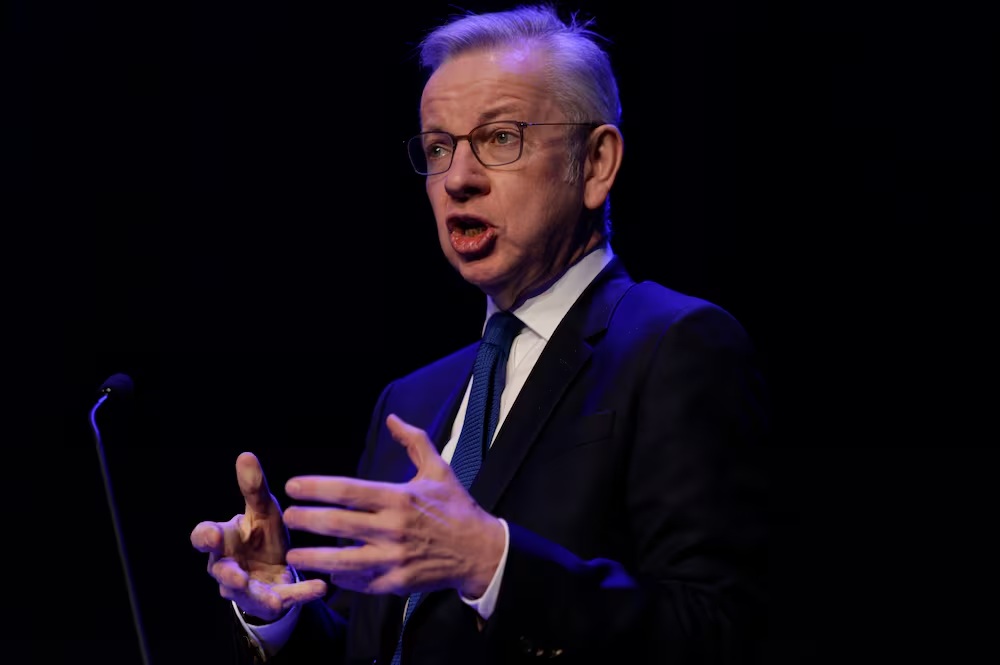European Centre for Counterterrorism and Intelligence Studies, Germany & Netherlands – ECCI
Michael Gove rewrites definition of extremism after decades-long battle
thenationalnews -For almost two decades, British politician Michael Gove has made it his mission to push for more stringent measures to tackle extremism in the UK.Now, after Prime Minister Rishi Sunak warned just days ago that the country was being torn apart by rising domestic tensions, Mr Gove will have his chance to change the system when he overhauls the UK’s definition of extremism, which has not been altered for more than 10 years.
Prof Ian Acheson, senior adviser at the Counter Extremism Project, was commissioned by Mr Gove seven years ago to look into Islamist extremism in prisons.”He has always been committed to tackling the threat posed by those who advocate hateful ideas in the high-level posts he has held in government as Secretary of State for Education, Justice and now at the department responsible for communities,” Prof Acheson told The National.
“There is an urgent need to strengthen the state’s faltering response to ideologies that can lead to terrorism. It is no surprise to me that after the Hamas atrocity on October 7 and Israel’s response he was tasked by the Prime Minister to re-examine the definitions and policies that guide the government’s response to hateful and harmful discourse across the political and religious spectrum.
“Gove will be expected to come up with a robust yet proportionate approach that balances shutting down extremists polluting our democratic values while preserving legitimate freedom of expression.”Mr Gove first examined issues of extremism in his book Celsius 7/7, which he published after the London 2007 bombings. It looked at the factors that led to the development of large-scale terrorism and how the West failed to stand up for its liberal values.
But it was in 2014 that he had his first brush with radicalisation issues as a politician, when he was Secretary of State for Education during the Trojan Horse scandal, an alleged extremist plot to take over schools.He ordered emergency inspections of schools in Birmingham over allegations they were being radicalised.It led to five schools being reprimanded for failing to teach pupils enough about religious diversity, segregating some classes according to gender and discouraging boys and girls from socialising with each other.
‘British values’
Back then, he announced an overhaul of the education system and vowed that the government would “put the promotion of British values at the heart of what every school has to deliver for children” and would teach mutual respect and tolerance of those with different faiths and beliefs.Since then he has campaigned repeatedly for more stringent regulations. His measures will focus on groups and people “undermining” British values.”We need to unite to fight extremism everywhere it exists,” Mr Gove said on X. “I will be saying more about how we can take on the forces that seek to divide in the days ahead.”
His comments came after Mr Sunak called on the UK to take a stand against the poison of extremism as he warned the country was being torn apart by domestic tensions.Mr Gove has been working behind the scenes for years to overhaul the UK’s extremism strategy and make it more stringent.Despite being a key player in government, especially through Brexit and Covid, he has not worked in the Home Office directly and has not had an opportunity until now to be more involved in tackling extremism.
But it has been his role as Secretary of State for Levelling Up, Housing and Communities that has now enabled him to finally champion the cause, which is close to his heart.His department started a review of non-violent extremism last year and is shortly expected to announce measures to bar groups or people deemed to be extremists from government and council funding, and from working with public bodies.
Banning radical groups
A list of the groups is expected to be unveiled.He is also expected to announce details of a government unit for combating extremism which will provide training for officials across government departments to improve their ability to identify extremism.It will be responsible for assessing whether individuals or groups have breached the new definition.
PM’s extremism warning
On Friday, Mr Sunak warned that democracy is being targeted by extremists and there were “forces here at home trying to tear us apart”.He has already pledged to “redouble support” for the anti-radicalisation Prevent programme and called for universities to stop extremist activity on campus.The Home Office is also drawing up a list of foreign extremist preachers who will be barred from entry into Britain.
Alan Mendoza, director of think tank the Henry Jackson Society, told The National the measures were “desperately” needed given the changing nature of extremism in the UK today.“We have seen an evolution of ideas inspiring, and tactics used by, extremist groups, and the definition needs to catch up with contemporary reality,” he said.“It is key that groups labelled extremist will also face sanction for that designation as this is the only way to send a clear message that government bodies will shun you if you seek to undermine our democracy.”
According to reports, the new plans will also see identified extremists added to visa warning lists and refused entry to the UK.It is understood ministers believe they can make greater use of powers to block people from entering the UK if they are seen as “non-conducive to the public good”.Typically used to prevent people who pose known security concerns from coming to the UK, it is understood the new plans will extend the powers to include those preaching racism, incitement or using intimidation or violence to undermine the democratic process.
Hans-Jakob Schindler, director of the Counter Extremism Project, said allowing the government to ban groups it deems extremist from government funding was a “necessary step”.”The government has already a very sharp instrument at its disposal but it is my understanding that there are very high hurdles to take before a group can be proscribed and it does not work for individuals,” he told The National.
“There is a question of what instruments the government has at its disposal before proscription is possible, and how to address individual extremists that do not break any criminal laws. This seems to be an attempt to give the government more instruments.“However, it all depends on what the UK procedure is or will be that gets such groups and individuals on the list of ‘extremist’ groups and individuals.”
The measures have been criticised by some as being an attack on freedom of expression.The government was forced to shelve proposals in 2016 which it hoped would “tackle the menace of extremism” after it faced widespread criticism.“If you change the law to restrict what they can and can’t say – all they will do is moderate their language, introduce coded phrases and push extremism into spaces that can’t be monitored,” said Ruth Anderson, chief executive at Index on Censorship.
“Suppression of language simply will not defeat the dangerous ideology at play. But what you will have done is create an environment where certain communities feel that they can’t speak at all – a chilling effect which will both create martyrs and undermine community cohesion.
“Moving the line of legality will simply result in extremists developing a new vocabulary to achieve the same outcomes as they did before. And then we enter a dangerous period of cat and mouse where restrictions become even tighter, ensnaring legitimate debate and discussion in order to catch those purveyors of hate.”
On Sunday, Jonathan Hall KC, the independent reviewer of counterterrorism legislation, said he had not seen “this level of open extremism” in Britain since being appointed in 2019.He told the Mail on Sunday: “It is the public brazenness of hate directed towards people by category, in particular Zionists, or Israelis, or Jews.”He added that Britain was seen as a “legitimate target for terrorists” because it allied with the US and Israel.
European Centre for Counterterrorism and Intelligence Studies, Germany & Netherlands – ECCI




